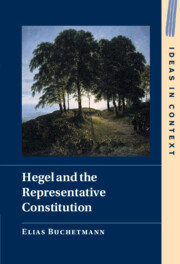This paper aims to expound Rowan Williams’s reading of Augustine and Hegel on the question of selfhood. Through an adoption of the tropes of ‘tragedy’ and ‘comedy’, the argument will be made that Williams’s interpretation of Augustine’s portrayal of the soul as wandering and homeless does not imply an unremitting vision of loss and fragmentation. For him, the distentio animi is always placed within a more expansive arc of desire in which the self is continually rediscovered in what is ‘other’. This means that my self is most primarily found in the unhanding of restrictive identities that hinder our spiritual growth towards union with God, and also in the discovery of my goods as being bound up with the goods of others. This reading is further expanded by relating Williams’s ‘Augustine’ to Gillian Rose’s ‘Hegel’, thereby showing the way that his reception of this has assisted him in explicating a greater ‘comic’ undercurrent in his retrieval of selfhood.


